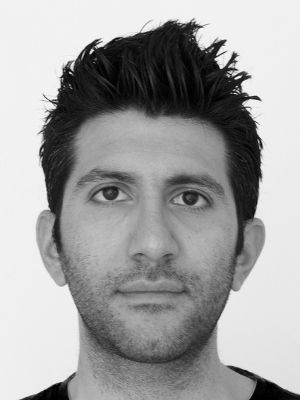Computational Design and Digital Fabrication
(MSc, 3 Semesters) – in collaboration with the University of Innsbruck- E-Learning/Distance Learning (Online)
Duration
3 Semesters
Qualification Awarded
Master of Science in Computational Design and Digital Fabrication
Level of Qualification
Master Degree (2nd Cycle)
Language of Instruction
English
Mode of Study
E-Learning/Distance Learning (Online)
Minimum ECTs Credits
90
Request Information
Computational Design and Digital Fabrication (MSc, 3 Semesters) – in collaboration with the University of Innsbruck- E-Learning/Distance Learning (Online)
| Duration | 3 Semesters |
| Qualification Awarded | Master of Science in Computational Design and Digital Fabrication |
| Level of Qualification | Master Degree (2nd Cycle) |
| Language of Instruction | English |
| Mode of Study | E-Learning/Distance Learning (Online) |
| Minimum ECTS Credits | 90 |
No enrolments for current semester
Request Information
The MSc in Computational Design and Digital Fabrication is offered in collaboration with the University of Innsbruck, Institute for Experimental Architecture Hochbau. The programme explores the relationship between computational tools and architectural design, in an effort to attain a new insight into the relationship between design intent and built form. Prospective participants will have the opportunity to develop computational design skills and acquire hands on cutting-edge fabrication experiences, while cultivating analytical and creative thinking on the applications of computation in design. Furthermore, the programme aims at promoting international exchange of research knowledge, through the connection to the University of Innsbruck and its Robotic Lab (REXLAB) at the Institute for Experimental Architecture. This encourages participants to become part of the global community of computational research in digital fabrication, a growing industry increasingly important for the production of the built environment.
The postgraduate programme operates as a cross-disciplinary platform aiming to bring together participants from various design and engineering specializations. The course is open to architects, interior designers, industrial designers, artists, graphic designers, engineers and suitably qualified candidates from other disciplines. For admission to the programme the candidates should submit the following documents:
- Completed application form
- Curriculum Vitae
- Detailed Portfolio displaying the background and/or interest in the theme of computational design and digital fabrication.
- Basic computing experience
- A Bachelor’s degree in a relevant field (together with a transcript) from an accredited institution of higher education.
- Short statement (approximately two pages) of personal goals, research aims and the reasons for your interest in the course.
- If your first language is not English, you might be requested to demonstrate that you meet the University of Nicosia Postgraduate Admissions Requirements for English Language Proficiency found here: https://www.unic.ac.cy/admission-requirements/.
- Contact Details of two referees, preferably one from academia and one from a professional supervisor
- Other documents that might support the application (e.g. articles, books, awards)
- The admissions process may include an interview during which the candidate can take a few minutes to present a topic of his own choice
Course assessment usually comprises of a comprehensive final exam and continuous assessment. Continuous assessment can include amongst others, weekly interactive activities, projects, positive online forum participation etc.
Letter grades are calculated based on the weight of the final exam and the continuous assessment and the actual numerical marks obtained in these two assessment components. Based on the course grades the student’s semester grade point average (GPA) and cumulative point average (CPA) are calculated.
The student must complete 90 ECTS and all programme requirements.
A minimum cumulative grade point average (CPA) of 2.0 is required. Thus, although a ‘D-‘ is a PASS grade, in order to achieve a CPA of 2.0 an average grade of ‘C’ is required.
Upon successful completion of this program, the students should be able to:
- Acquire knowledge and expertise in computational design and digital fabrication in relation to architecture and design.
- Interpret and criticize specific design methodologies, current applications and emerging advances in the field of computational design and digital fabrication.
- Asses the effect of these methodologies and applications in the production of the built environment.
- Conduct research leading to new knowledge.
- Propose original applications of analysis and research knowledge in the field of computational design and digital fabrication through design projects.
- Evaluate current methodologies and develop critiques of them, in relation to the question set and the outcome of the method.
- Identify problems in design-to-fabrication workloads and develop solutions based on feedback loops between digital and material world.
- Display high-level and sought-after skills in pursuing computational design research, including software skills, 3D-modelling, visual computer programming and text-based programming.
- Display high-level skills in pursuing digital fabrication and material research, including material properties understanding and physical prototyping.
- Formulate material fabrication techniques and physical prototyping as a medium for improving design communication and outcome.
- Unfold leadership skills, through teamwork and workshops, relative to architectural workflows with the purpose of enriching current practices or introducing new processes that can provide design solutions as a result of automated, computational processes.
- Develop the capacity to creatively deal with complex problems either individually or as part of a group through research and design projects.
- Acquire the ability to communicate research and design conclusions clearly to specialist and non-specialist audiences through design projects and presentations
Min. ECTS Credits: 60 Max. ECTS Credits: 60
| Course Code | Course Title | ECTS Credits |
|---|---|---|
| ARCH-570DL | Digital Fabrication | 10 |
| ARCH-571DL | Theory and Evolution of Computational Design | 10 |
| ARCH-572DL | Computational Design Processes | 10 |
| ARCH-580DL | Robotic Fabrication | 10 |
| ARCH-581DL | Interactive Design | 10 |
| ARCH-582DL | Performance Based Design | 10 |
Min. ECTS Credits: 30 Max. ECTS Credits: 30
OPTION A: Design Project ARCH591DL + ARCH-593DL or ARCH590DL
| Course Code | Course Title | ECTS Credits |
|---|---|---|
| ARCH-590DL | Research Methodology in Design and Technology | 10 |
| ARCH-591DL | Design Project | 20 |
| ARCH-592DL | Thesis | 20 |
| ARCH-593DL | Special Topics in Computation | 10 |
Semester 1
| Course ID | Course Title | ECTS Credits |
|---|---|---|
| ARCH-570DL | Digital Fabrication | 10 |
| ARCH-571DL | Theory and Evolution of Computational Design | 10 |
| ARCH-572DL | Computational Design Processes | 10 |
Semester 2
| Course ID | Course Title | ECTS Credits |
|---|---|---|
| ARCH-580DL | Robotic Fabrication | 10 |
| ARCH-581DL | Interactive Design | 10 |
| ARCH-582DL | Performance Based Design | 10 |
Semester 3
| Course ID | Course Title | ECTS Credits |
|---|---|---|
| ARCH-590DL | Research Methodology in Design and Technology | 10 |
| ARCH-592DL | Thesis | 20 |







